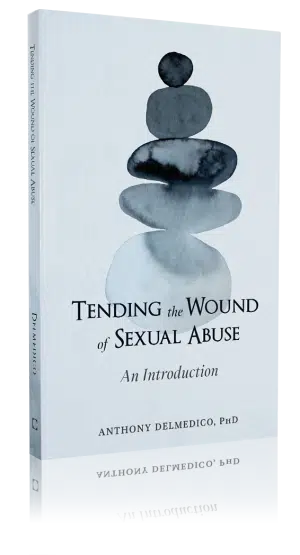
Sexual abuse can happen to anyone at any age, although it is a crime perpetrated largely against youths, especially during adolescence and early adulthood. Tragically, relatively few receive the professional support they need. For many, the failure to access care is the result of limited resources or the stigma that still surrounds mental illness and histories of sexual abuse. Yet, an often-unacknowledged obstacle to seeking help stems from a lack of information about the signs and symptoms of sexual trauma.
Adolescence and early adulthood are distinguished by their numerous developmental milestones, many of which involve profound, if not disruptive, changes. Even without histories of trauma, adolescents and young adults must navigate shifting relationships, hormones, identities and roles, and the strong emotions that ongoing uncertainty can evoke. Too often, those who have been sexually abused do not know how to differentiate its traumatic effects from feeling stressed and overwhelmed, nor do they know what they can do to alleviate their suffering. Furthermore, if they wait too long to address the impact of sexual abuse on their minds, bodies, and relationships, they are at greater risk for developing maladaptive coping strategies, such as substance abuse or other forms of self-harm, as well as other mental disorders. They are also more likely to attempt suicide or die by suicide.
Psychotherapist Anthony Delmedico, Ph.D., has created a gem of a resource specifically for people 15 years and older with histories of sexual abuse. Tending the Wound of Sexual Abuse summarizes some of the most debilitating consequences of sexual abuse and provides useful strategies for dealing with them. Dr. Delmedico is trained in depth psychology and the treatment of trauma. In his book, he weaves these two approaches in language and imagery directed to adolescents and young adults. He deliberately avoids using the terms victim and survivor, instead framing sexual abuse as a wounding and part of the heroine’s or hero’s journey that Joseph Campbell made famous in his 1949 book, The Hero with a Thousand Faces. According to Dr. Delmedico, because of the profound impact sexual abuse can have on mind, body, and soul, it requires “tending the wound” throughout people’s lives, influencing how they become the heroine or hero of their life’s journey.
Tending the Wound of Sexual Abuse is an introduction to working with the wound of sexual trauma regardless of gender. The book contains 110 pages of text, journal prompts at the end of each chapter, and 5 useful appendixes. The book is divided into six sections that initially are meant to be read sequentially. Readers are encouraged to return to earlier sections when symptoms reoccur, which Dr. Delmedico describes as the nature of the wounding and why it requires regular “tending” throughout one’s life.
Tending the Wound of Sexual Abuse begins by listing circumstances that are legally defined as sexual abuse, which for some may be difficult to read. Definitions are used from the Department of Justice and another resource that are quite explicit. Unfortunately, most youths are not adequately informed of their sexual rights, nor do they know the many types of experiences that can cause traumatization. Although it is necessary to provide such definitions, describing these experiences without activating psychological defenses is not easy. Otherwise, the book avoids triggering language and approaches the topic of sexual abuse with sensitivity, simplicity, and frankness. Even so, Dr. Delmedico does not sugarcoat the challenge of the wounding caused by sexual abuse. He writes:
“Because our memories cannot be erased, we only have a couple of options for dealing with them. When unwanted memories or bodily sensations arise, we can either (a) ignore them or push them away or (b) work with them. Unfortunately, if you try to push them away, they only gain power and just keep coming back. And if you keep ignoring them, they will start negatively affecting you in other ways. Since you will have to deal with them sooner or later, why not learn how to do it now? It will save you a lot of misery in the long run” (pp. 10-11).
Tending the Wound of Sexual Abuse concentrates on major consequences of sexual abuse: self-blame, self-criticism, traumatic memories, suicidal thinking, emotional and physical dysregulation, and nightmares. The book functions much like a psychological first-aid manual and provides a range of tools, such as breath work, emotional and physical regulation techniques, imaginal dialogues with inner critics and strong emotions, and imaginal work with nightmares. These tools are introduced with psychoeducation for the signs and symptoms of sexual trauma. The importance of pursuing support is given special attention and reiterated throughout the book. Dr. Delmedico does a great job balancing self-directed practices with repeated examples of when and how to seek assistance, whether from professionals, family, friends, school staff, or employers.
Of special note, Dr. Delmedico created the nonprofit First Haven (www.FirstHaven.org) to support the distribution of Tending the Wound of Sexual Abuse. Profits from sales of his book are used to provide complimentary copies to agencies and organizations. Hopefully, this book will find its way to individuals who need and deserve this helpful resource.
Tending the Wound of Sexual Abuse: An Introduction
Anthony Delmedico, Ph.D.
128 pages
ISBN: 978-1-7346308-3-1
Copyright 2022, First Haven
